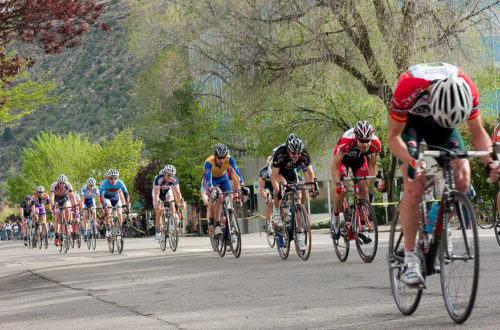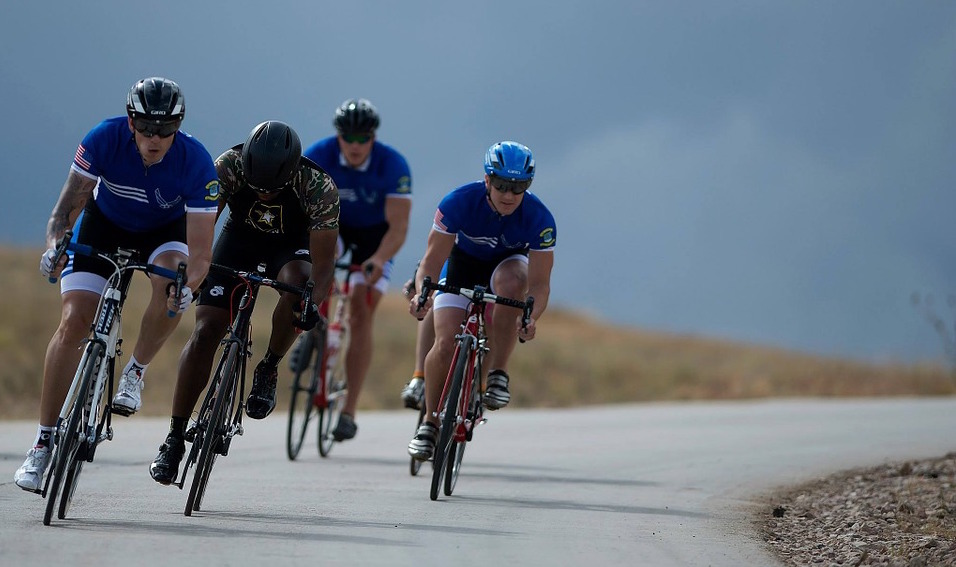19 Things You Can Do Right Now To Go Faster in Your Next Race (that are supported by research)
Going faster is more fun, regardless of your fitness level. Whether you’re going for an Olympic medal, or trying to get your half-marathon pace under ten minutes per mile, many athletes are not aware of just how many safe, legal, and effective options there are for improving performance. A recent conversation I had with a triathlete who is looking to qualify for the Ironman World Championships in Kona got me thinking about some of the different ways that sports nutrition (including food, supplements, and environmental factors) can improve performance. One of my favorite things as a sports dietitian is working with athletes who have combined their genetic gifts with years of hard (and smart) training to reach a high level. In many cases, however, they have not taken advantage of the icing on the cake that the right supplements and nutritional support can provide.
… many athletes are not aware of just how many safe, legal, and effective options there are for improving performance
I’m currently using many of the things on this list with top-level athletes, and wanted to share them with people who are looking for ways to swim, bike, and/or run faster. This is by no means a complete list and not all of these will be appropriate or helpful for everyone, but they’ve all shown benefit under the right circumstances. This also highlights the importance of working with someone knowledgeable enough to understand your individual needs and goals.
* You should always consult with a healthcare practitioner prior to beginning any supplement to ensure adequate dosage and safety.
- Proper hydration – Aerobic performance is consistently impaired when dehydration exceeds 2% of body mass (independent and additive to heat stress)
- Adequate carbohydrate intake during the race – Depending on the length of exercise, 30-90 g /hr may be beneficial, with a possible sweet spot around 78 g/ hr leading to ~5% improvements in time trial performance
- Consuming the right type of carbohydrates – Ingestion of glucose and fructose resulted in an 8% quicker time to completion during a time trial compared with just glucose and a 19% improvement compared with water
- Caffeine – Most people wouldn’t be surprised to hear about a 5% faster time trial performance
- Having a scientific nutrition strategy– 6% faster performance when following a scientific strategy compared with the participants eating and drinking when and however much they wanted to.
- Beet juice – 8% faster time trial performance
- Sodium phosphate – Improved repeated sprint and time-trial cycling efforts, both 1 and 4 days after trained cyclists completed 6 days of supplementation
- Beta-alanine – Improved repeated sprint performance

- Topical carnosine – 4% improvement in repeated 1k running times
- Baking soda – 3% improvement in 4-min power output in trained cyclists
- Citrulline malate – Lowered lactate levels and better fatigue recovery in endurance athletes
- Heat acclimation – Improved time-trial performance by 6% in cool and by 8% in hot conditions
- Altitude acclimation – ∼97.5% of adequately prepared athletes are likely to increase Hemoglobin mass by at least 1% after approximately 300 h of altitude exposure
- HMB – Improved aerobic and anaerobic capacity in trained rowers
- Black currant extract – 4% improvement in 16 km cycling time trial performance
- Pycnogenol – 16% longer time to exhaustion in trained athletes
- Lactate supplementation – 17% more total work performed during high intensity exercise
- Sodium loading – Lowered body temperature during exercise in the heat
- Creatine – Up to 15% improvements in repeated sprint exercises
* Good diet – Following an overall healthy dietary approach is certainly a good idea, but it’s not as sexy nor is it as likely to dramatically impact short-term performance. For example, Usain Bolt lived off McDonalds at the Beijing Olympics, and fast food worked as well as sports supplement foods for restoring glycogen levels and subsequent time trial performance.
In my practice I do follow a food-first approach, correcting any dietary imbalances before considering supplements or more advanced food timing tweaks. However, I don’t see why the conversation needs to end there, when so many options exist for squeezing an extra few percent out of someone’s performance!
For more information on private consultations you can contact me here. If you are interested in learning more about supplements you can also watch the free talk on sports supplements for cyclists  that I gave to the La Grange cycling club which goes into a bit more detail with some of these things.
that I gave to the La Grange cycling club which goes into a bit more detail with some of these things.
Have I missed any other approaches that can help? Comment here or on Facebook!
